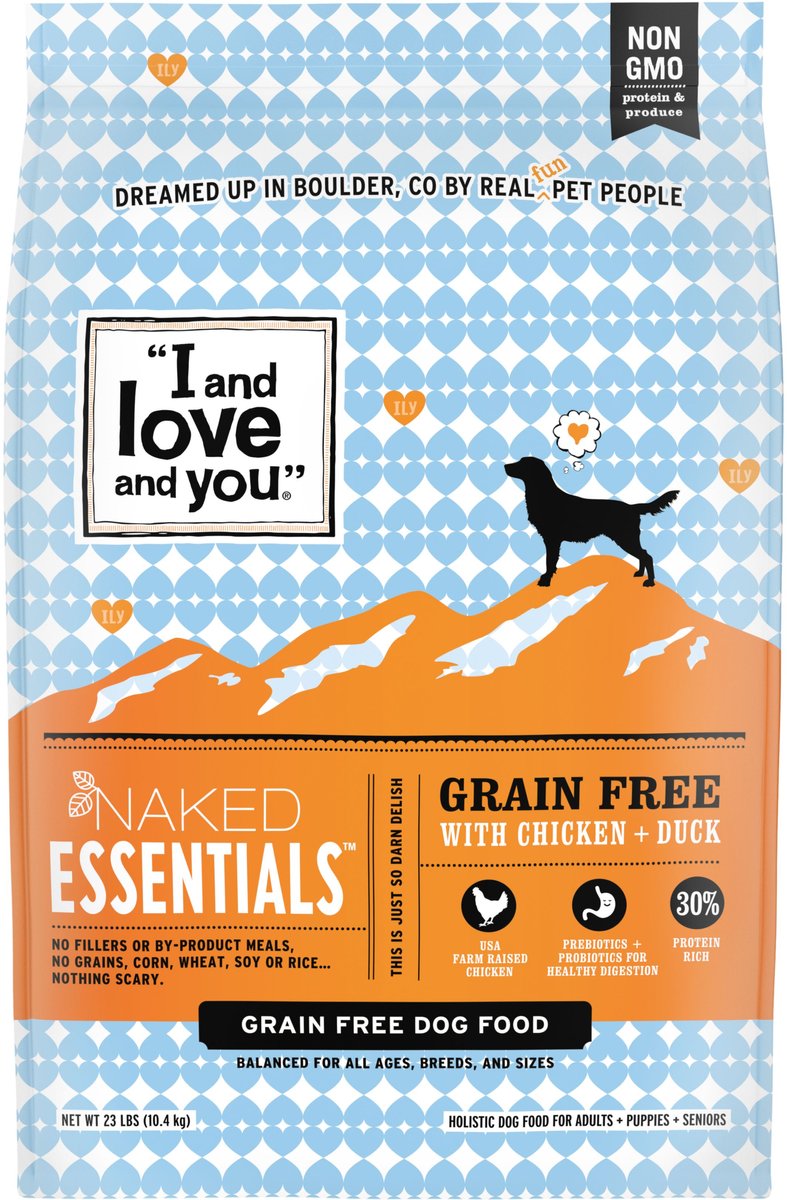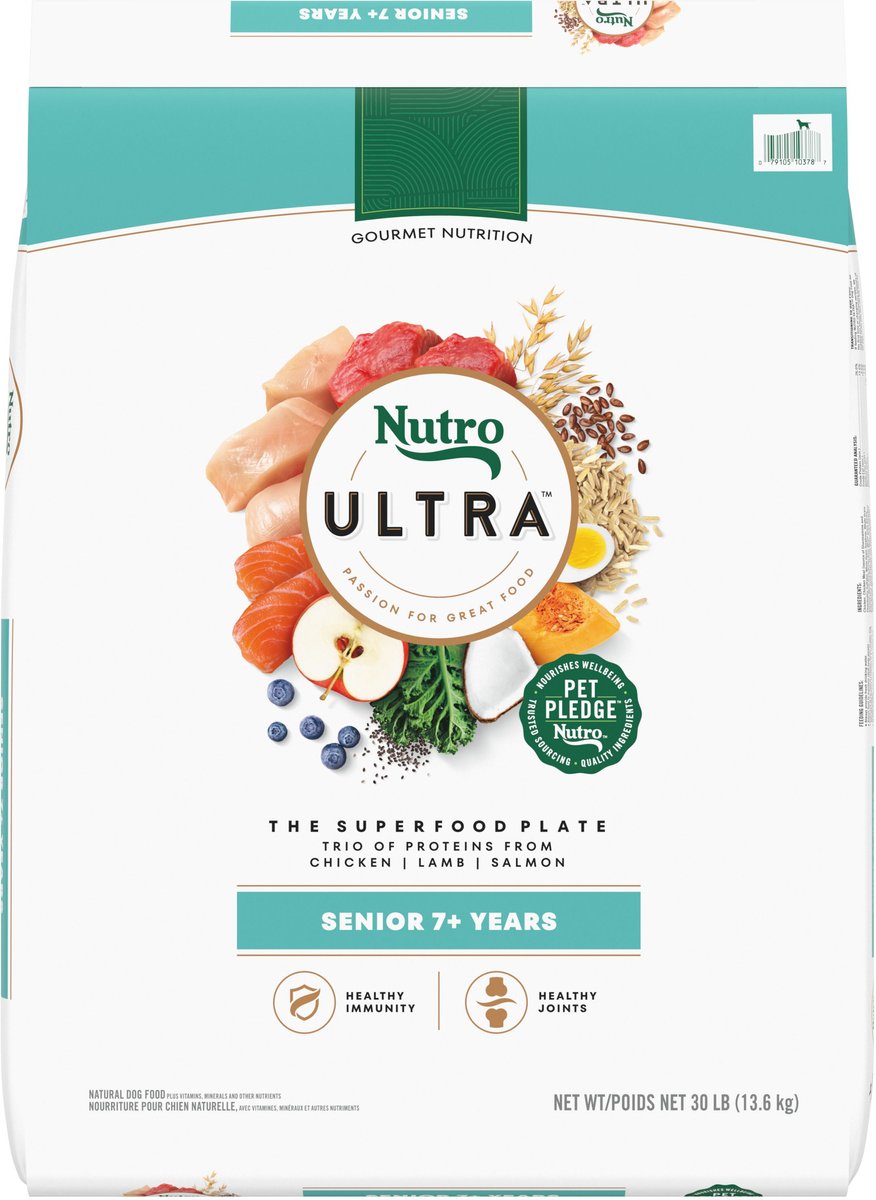What are the Best Dog Foods for Shih Tzus?

The elegant Shih Tzu carries itself with an air of royalty and joy. A breed that is as sweet natured as it is beautiful, this happy little dog makes an excellent family companion. Determining the best food to feed your Shih Tzu is the most important factor of good health, so our nutrition team is here to navigate the different food options on the market. We’ll take a look at the best options for puppies, adults, and seniors.
Jump to section
Breed Info
Breed Group:Toy | AKC Shih Tzu Profile
Ideal Weight:Female Adult: 11 to 14 pounds
Male Adult: 11 to 14 pounds
Exercise Need:15 to 25 minutes per day
Breed Summary
The Shih Tzu is easily identified by its silky, flowing coat and supreme friendliness. Sure, their snub-nosed appearance make it look like they’re parading around with an air of superiority, but the Shih Tzu is anything but a snob. They are extremely fun, confident and are loyally devoted to their family.
Shih Tzus adapt to virtually any lifestyle, making them the ideal family companion. They can live just as easily in an apartment in the city as on a vast amount of acreage in the country. They have only moderate daily activity requirements, so a leisurely daily walk will do just fine to keep them active.
The Shih Tzu gets along well with other animals, making the breed an excellent choice for a home with multiple pets. They are also deeply fond of children and are gentle and loving towards them.
Fun fact: The Shih Tzu has been referred to as the Chrysanthemum Dog, a reference to how the breed’s facial hair grows to resemble the popular flower.
Physical Traits
Elegant, compact, sturdy, energetic, distinct underbite
Personality Traits
Friendly, lively, loving, devoted, gentle
Health Considerations
-
Allergies
The Shih Tzus is only one of many dog breeds that can be troubled by allergies. Food allergies are the most common culprit, and an elimination diet can help to pinpoint the food triggers. Some dogs also suffer from sensitivities to things in the environment or topical treatments such as creams, shampoos, and conditioners. Every dog is a little different, so just keep an eye out for sneezing, wheezing, coughing, red or watery eyes, or rashes. Even the healthiest diet may need to be adjusted if your shih tzu has allergies.
-
Hip Dysplasia
Hip dysplasia is a condition in which the hip bone does not fit properly in the socket joint. Over time, the rubbing of bone against bone causes deterioration of the bones, leading to pain, lameness, and even early onset arthritis. Hip and elbow dysplasia aren’t something you can really prevent with nutrition, but you can help mitigate discomfort with foods that contain joint-healthy ingredients.
Recommendations:
Antioxidants・ Chondroitin・ Glucosamine・ Green Mussel・ Methylsulfonymethane・ Omega-3 from Fish Oil・ Taurine・ Turmeric・ Vitamin E
Get a tailored nutrition profile for your dog
Our free nutritional assessment tool provides individualized recommendations based on your dog's breed characteristics, age, weight, body condition score, and activity level. It only takes 30 seconds to receive science-based insights to support your dog's lifelong health.
Are Fresh Food Diets Good for Shih Tzus?
Only if they’re properly balanced.
Many well-intentioned Shih Tzus parents spend a lot of time preparing meals at home, but health benefits are lost if meals aren’t properly portioned and balanced with all the nutrients dogs need. Recently, a few companies have done an excellent job ensuring accurate portions and nutrient balance by delivering pre-prepped fresh meals customized to the size and needs of your dog. Farmer’s Dog, Ollie and Nom Nom have each been approved by our nutrition team as delivering truly quality and well-balanced meals. They can be a little expensive (usually 3-4x more per day than kibble), but many find the added health benefits worth the cost. They do offer discounts to new customers, though, if you’d like to try one out.
Pros and Cons of Fresh Food Diets
✓ Diets balanced by Nutritionists・ ✓ Customized portions for weight control・ ✓ Superior digestive and immune health ・✕ More expensive than standard dog food
Foods We Recommend for Shih Tzus Puppies
How long do Shih Tzuss need puppy food?
Until they're 10 to 12 months old.
Shih Tzus are very focused on growing, and how we feed them should help them do just that. Since they have so much growing to do, they need higher amounts of nutrients than adult dogs, especially proteins, fats, carbohydrates, vitamins, minerals and — don’t forget — water. It’s still important to not overfeed puppies, so make sure to portion food and keep treats to no more than 10% of their caloric intake. Since balance is so important, we recommend that your young Shih Tzus is eating food that is made just for puppies from a reputable brand.
Find the best nutritional start for your puppy
Our recommendation tool evaluates your puppy’s breed, age, growth stage, lifestyle, and health needs to identify a scientifically appropriate diet from over 10,000 options. Obtain personalized guidance to help support healthy development and lifelong wellness.
Foods We Recommend for Shih Tzus Adults
When should Shih Tzus start transitioning to adult food?
When they're 10 to 12 months old
From a nutrition standpoint, Shih Tzus become adults once they reach about 90% of their expected weight. Once adults, our two key nutrition goals are balance and maintenance. We want balance because a dog’s body is responsible for a lot of things, like digestion, fighting infection, keeping muscles strong, and chasing squirrels. These are all important tasks, so we want to make sure each body function gets its share of nutrients. We also need to maintain a healthy weight. Underfed dogs are at risk for malnourishment, and overfed dogs can become obese — both of which lead to even worse problems for a Shih Tzu
Find the optimal nutrition plan for your adult dog
Our assessment analyzes your dog’s breed, age, lifestyle, and health considerations to recommend a scientifically selected diet from over 10,000 options. Personalized insights to help your dog thrive through adulthood.
Foods We Recommend for Shih Tzus Seniors
When should Shih Tzus start transitioning to senior food?
All dogs can age differently, but small dogs like Shih Tzus can start to benefit from senior food around 8 to 10 years old
Ever watch kids running around the playground and wish you had that energy again? Yeah. Dogs get there, too. The metabolic processes in senior Shih Tzus slow down as they age, which often means they aren’t needing quite as many calories as they did in their prime. Smart dog food companies have formulated senior diets to ease up on calories but still help them feel full and give them adequate maintenance protein. Still, like humans, everybody is different. Sometimes older dogs need just as many calories, or more, depending on how their bodies progress. So keep a close eye on their body condition, and look for dog foods made for seniors.
Support your senior dog's health with targeted nutrition
Our assessment analyzes your dog’s breed, age, and health considerations to recommend a science-based diet from over 10,000 options. Help maintain mobility, cognitive health, and quality of life.
Affiliate Disclosure:
We do not accept money to recommend pet foods. However, we do receive referral fees from online retailers (such as Chewy or Amazon) on qualifying purchases. Our recommendations are neutral, and diet recommendations are made without considering whether we will receive a referral fee.















